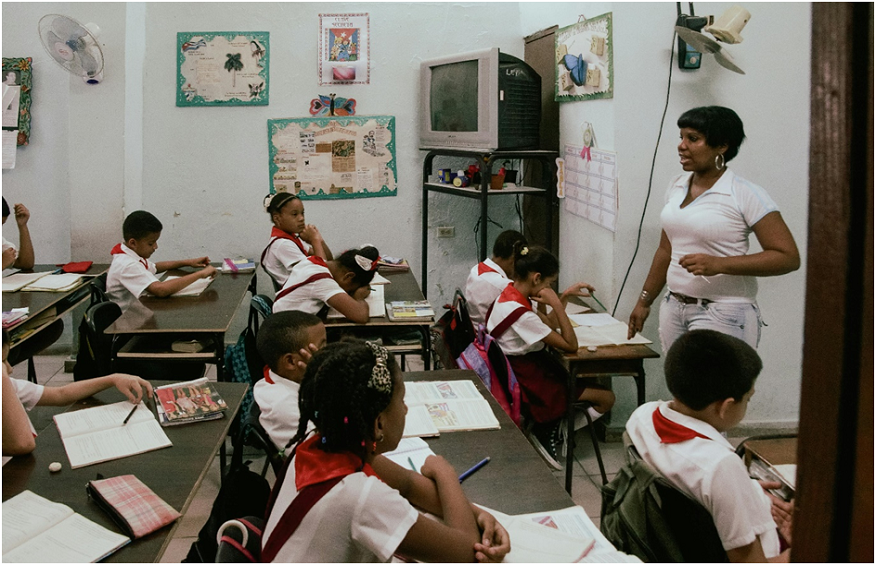Sri Lanka is emerging as a new hotspot for teachers looking for employment opportunities. Offering a rich cultural history, this country is known for its literature, music, and traditional handicrafts. If you are trying to immerse yourself in teaching amidst the mountains, plains, and forest reserves, then you must first equip yourself with teacher training courses in Sri Lanka to get hold of better opportunities. If you are trying to frame your teaching career in this nation, here is everything you must know before embarking on your journey.
What Are The Requirements To Teach In Sri Lanka?
Even though the list is not extensive, there are a few requirements you need to meet to legally teach in Sri Lanka:
- A Bachelor’s degree in any subject from a reputed institution
- A TEFL/TESOL or CELTA certification from an internationally accredited organization (for ESL positions)
- At least 2-3 years of teaching experience (for government and international schools)
- A Clean criminal record
- A valid work visa
You must also remember that the requirements might differ from institution to institution. Hence, it is always a good idea to check the specific schools or universities you are interested in working for.
Where Can You Teach In Sri Lanka?
Now that you have understood the requirements, it is now time to figure out the types of organizations you can look at for opportunities:
Government Schools
You can enroll in National Colleges of Education to pursue a career as a government school teacher. Three-year pre-service professional courses in teacher education are offered by these colleges that allow you to qualify for government schools.
Additionally, teaching positions are available to graduates of accredited universities through the Ministry of Education and Provincial Councils. Graduate instructors instruct GCE A/L courses in the fields of science and mathematics (physics, chemistry, biology, and combined mathematics), commerce, the arts, and technology.
International Schools
Should you possess the requisite qualifications and skills, you may apply for a teaching position at an international school or a private school in Sri Lanka that prepares students for international exams like the Cambridge, IELTS, etc.
You can apply directly to these schools as each school’s principal has the authority to hire teachers for these institutions. Since English is the medium of instruction, you typically need to have strong subject knowledge in addition to English language proficiency to apply for teaching positions.
Primary Schools
In Sri Lanka, teaching primary school students requires a minimum of a Bachelor of Education or a Diploma in Education. Additionally, you must be registered with Sri Lanka’s Teacher’s Council.
It can be challenging to become a primary school teacher, but it is feasible to do so by finishing a degree program and receiving professional training. In Sri Lanka, enrollment in the National College of Education and successful completion of a professional skills exam are prerequisites for certification.
Universities
To work as a lecturer at a university in Sri Lanka, one must have a master’s degree in a relevant field and at least eighteen months of teaching experience.
It’s also necessary to submit your research in a format that satisfies the demands of the university. Applying for a job requires at least six years of professional experience in your field.
Private Tuitions
Creating a Private Tuition class and teaching is a simple process. You can offer tuition classes for the O/L and A/L exams, as well as the Grade 5 scholarship examination. You must be knowledgeable about the subject, familiar with the exam’s question formats, and qualified to instruct.
You can start individual lessons by placing an ad in your community’s newspapers or online, holding group lessons, or holding lessons at one of Sri Lanka’s many tuition centers or institutes.
How Much Can You Earn As A Teacher In Sri Lanka?
From 2018 to 2022, the majority of primary school teachers will make between LKR18,635 and LKR69,412 which is around $57.67- $214.88) per month. The total monthly salary for a government teacher in Sri Lanka is LKR 40,000, according to the Ministry of Education.
In Sri Lanka, the average monthly salary for an English teacher is between LKR 100,000 and LKR 150,000, or roughly $550 and $830.
What Do You Need To Become A Teacher In Sri Lanka?
If you are planning to become a teacher in Sri Lanka, here is what you need to possess:
Teacher Training
Your path requires teacher training, or academic preparation to become a teacher in Sri Lanka. A valuable teaching certificate from the National College of Education is a prerequisite for working as a teacher in a school.
These institutions offer national diplomas to their students. Any comparable degree from a local or private institution could also be accepted. To be hired as a teacher, you must pass written tests and potentially an interview-based selection process.
Teaching Skills
For teaching positions, a strong command of languages is a prerequisite. Proficiency in Sinhala and English is mandatory for government educators, while fluency in English is required for private tutors and teachers.
It is necessary to be able to understand the curriculum. Being an excellent teacher requires having strong communication skills because you will be interacting with your students daily.
Passion
Although passing entrance exams and earning a teaching certification are the official requirements for teaching, there is much more to it than that. Teaching is indeed a profession that requires passion.
You tend to lose interest in these academic jobs, but you will be expected to pursue teaching jobs daily with the same fervor. Remember that if you behave in a pleasant and upbeat manner, your students will comprehend what you are teaching with a positive mindset.
Acceptance And Respect
Respecting academic staff members and other teachers is a requirement of teaching in schools. They are going to help you in every way possible to do a better job of teaching. Taking on their recommendations, counsel, and guidance will help you improve as a teacher.
Since they have a better understanding of how instruction affects them, it is also crucial to pay attention to what your students have to say. As a result, always have a positive outlook when accepting feedback. Make sure you assess yourself and make changes to your teaching strategies.
Live And Teach In Sri Lanka
Now that you have a fair idea of what teaching in Sri Lanka looks like, it is time to get on with teacher training courses in Sri Lanka and look for opportunities that suit your requirements. Follow your passion and live your dream of living and teaching in Sri Lanka while exploring nature at its best.



